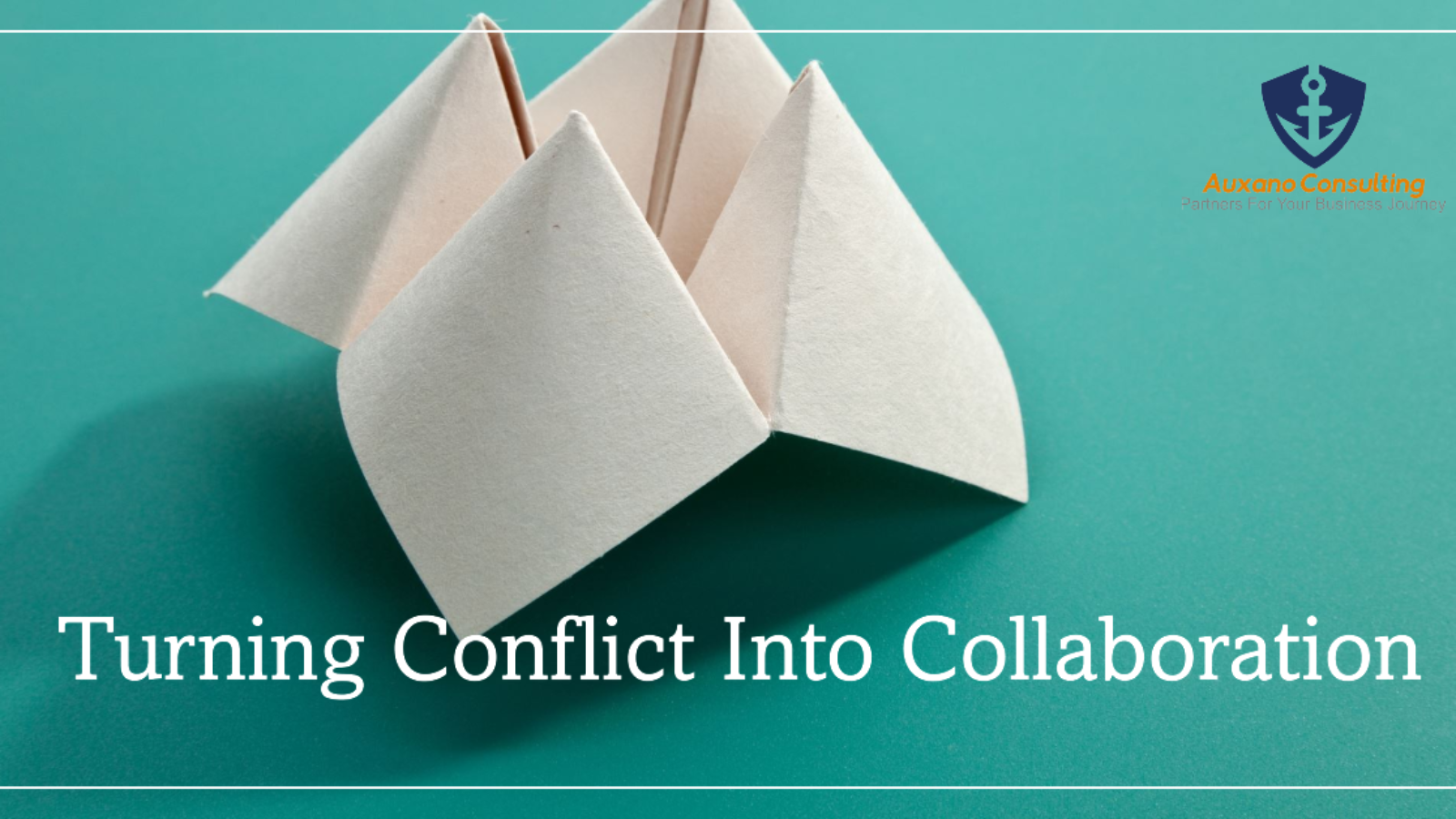The corporate world thrives on teamwork. But what happens when those teams encounter task conflicts? Disagreements about priorities, approaches, or deadlines can quickly derail progress and sour team spirit. However, fear not! By fostering a culture of open communication, clear goals, and a focus on shared objectives, you can turn conflict into a catalyst for productive collaboration.
Understanding Task Conflict:
Task conflict, unlike personal conflict, is a natural part of the collaborative process. It arises from the diversity of thought and experience that team members bring to the table. These differing perspectives, work styles, or approaches to achieving a common goal can lead to disagreements about priorities, methodologies, or deadlines. While it may seem disruptive in the moment, effectively managed task conflict can spark creativity, lead to more innovative solutions, and ultimately strengthen the team.
Strategies for Productive Collaboration:
- Embrace Transparency: Open communication is key. Encourage team members to voice concerns and explain their reasoning behind proposed approaches. This foster understanding and allows for adjustments before conflict escalates.
- Define Clear Goals and Roles: Ensure everyone is on the same page. Set clear project goals with defined deadlines and responsibilities. This reduces ambiguity and helps individuals understand their contribution to the bigger picture.
- Harness Diverse Perspectives: Conflict often stems from different viewpoints. See it as an opportunity to explore a wider range of solutions. Value diverse perspectives and encourage healthy debate.
- Focus on Solutions, not Blame: Shift the focus from who is right to what works best for the team. Encourage brainstorming sessions to generate solutions that address everyone’s concerns.
- Facilitate Respectful Communication: Create a safe space for open dialogue. Encourage active listening, respectful communication, and a focus on finding common ground.
- Leverage Technology: Collaboration tools can streamline communication and task management. Utilize platforms that facilitate discussions, document sharing, and project tracking to keep everyone aligned.
- Celebrate Success: Acknowledge and celebrate successful conflict resolution. This reinforces positive behaviors and encourages continued collaboration.
Benefits of Managed Task Conflict:
- Improved Decision-Making: When teams have open communication about task conflicts, they can explore a wider range of options. Different perspectives illuminate potential blind spots in any single approach. By considering the strengths and weaknesses of various strategies, teams can arrive at more comprehensive, well-rounded solutions. Imagine a marketing team debating a new ad campaign. One member might advocate for a traditional print ad, while another favors a social media campaign. Through healthy debate, the team may discover a hybrid approach that utilizes both print and social media for maximum impact.
- Enhanced Creativity: Healthy conflict can act as a catalyst for creative problem-solving. When team members challenge each other’s ideas respectfully, it can spark new ways of thinking and generate innovative solutions beyond the initial proposals. For example, a product development team might be stuck on a design flaw. A disagreement about the best solution could lead to brainstorming that uncovers a completely new and unexpected design element, ultimately leading to a better product.
- Stronger Team Bonds: Navigating conflict successfully fosters trust and respect among team members. It demonstrates a willingness to listen, understand other viewpoints, and work together to find solutions. Overcoming challenges strengthens team bonds and builds a sense of shared accomplishment. Imagine a sales team facing a challenging client negotiation. By collaborating and resolving internal disagreements about pricing and concessions, the team presents a united front and achieves a successful outcome. This strengthens trust and respect among team members and fosters a sense of camaraderie.
Few Conflict Resolution Techniques:
- Brainstorming Sessions: Brainstorming sessions provide a structured environment for exploring diverse solutions. Key to a successful session is encouraging everyone to contribute ideas freely, building on each other’s suggestions. Remember, outrageous ideas can sometimes lead to breakthroughs!
- Root Cause Analysis: Don’t just address the surface of the conflict. Delve deeper to understand the underlying reasons behind disagreements. This helps identify the true obstacles and find solutions that address the core issue. For example, a disagreement about deadlines might stem from a lack of clarity on project scope or workload distribution. Addressing the root cause, rather than simply adjusting deadlines, will create a more sustainable solution.
- Mediation: When tensions run high or communication breaks down, it might be beneficial to introduce an impartial facilitator. A mediator can guide the discussion, ensuring everyone has a chance to speak and feel heard. They can also help restate concerns, identify common ground, and move the conversation towards a mutually agreeable resolution. This impartial third party can help manage emotions and focus on finding solutions.
Conclusion:
Effective leadership plays a crucial role. Team leaders must act as facilitators, ensuring everyone feels comfortable contributing, managing discussions, and guiding the team towards a unified solution.
By implementing these strategies, you can transform task conflict from a roadblock to a springboard for innovation and high-performing teamwork. For further exploration of team collaboration and conflict resolution, contact Auxano Consulting today.
Let us know in the comments section below! How have you successfully managed task conflict in your team? What techniques have worked best for you? Share your insights to help others navigate similar challenges and build stronger, more collaborative teams.
(Written by Vineeta, Image sources: AI Generated)
Feel free to connect with Linnet Dave, Auxano’s Director and Executive coach on linnet@auxano-consulting.com or connect with her at +919820668179 for any queries on the subject and if you need to get a customized learning Intervention done for your organization.

